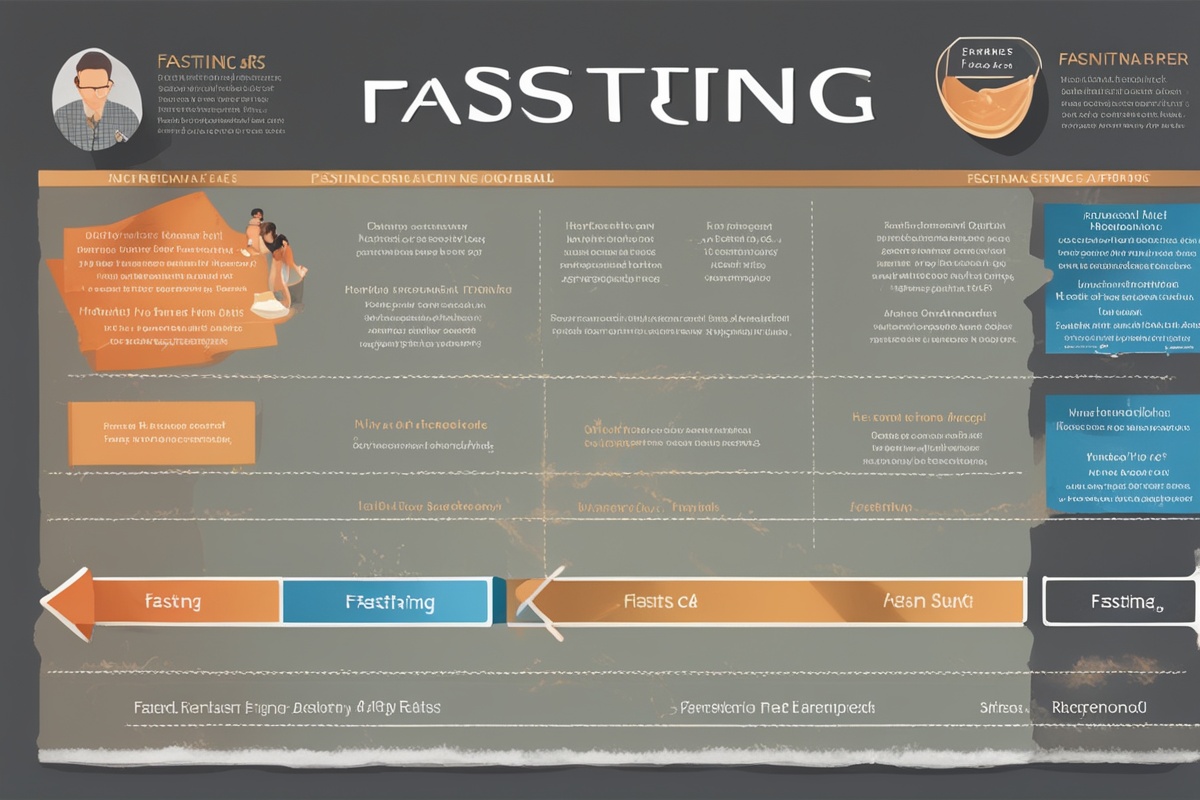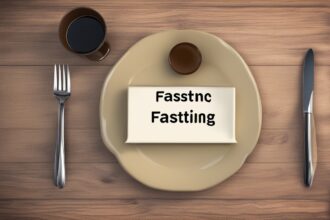Welcome to the fascinating world of fasting! If you’ve ever wondered, “what is fasting, and how can it benefit me?” you’re in the right place. Fasting, at its core, is the voluntary abstention from food and sometimes drink for a specific period. But it’s so much more than just skipping meals. In this comprehensive guide, fasting explained in simple terms, we’ll dive into its history, science, benefits, and practical ways to incorporate it into your life. Whether you’re curious about intermittent fasting, water fasting, or religious fasting practices, this post will equip you with the knowledge to get started. Let’s explore how this ancient practice can transform modern health!
The Basics of Fasting: What Does It Mean?
Fasting is a practice that dates back thousands of years, rooted in cultural, spiritual, and health traditions across the globe. Simply put, fasting means refraining from consuming food or drinks for a set duration. It’s not about starvation but rather giving your body a break from constant digestion. When we talk about fasting explained in today’s context, it often refers to structured methods like intermittent fasting, where you cycle between eating and fasting periods. The goal? To tap into the body’s natural ability to heal, reset, and optimize itself. From ancient religious rituals to modern wellness trends, fasting has evolved, but its essence remains the same: intentional restriction for a greater purpose.
Why Do People Fast? Common Reasons and Motivations
People fast for a variety of reasons, and understanding these motivations helps clarify why fasting is so widely practiced. For some, it’s a spiritual journey—think of Ramadan in Islam or Lent in Christianity, where fasting fosters discipline and connection to faith. For others, it’s about health. Scientific studies have shown that fasting can support weight loss, improve metabolic health, and even promote longevity. Then there are those who fast for mental clarity, as taking a break from food can reduce brain fog and enhance focus. No matter the reason, fasting benefits often overlap across physical, mental, and emotional domains, making it a versatile tool for well-being.
The Science Behind Fasting: How It Affects Your Body
Let’s get into the nitty-gritty of fasting explained through a scientific lens. When you fast, your body undergoes remarkable changes. After about 12–16 hours without food, your glucose stores (glycogen) deplete, and your body switches to burning fat for fuel—a state called ketosis. This metabolic shift is one reason fasting is linked to weight loss. Moreover, fasting triggers autophagy, a cellular “clean-up” process where damaged cells are recycled, potentially reducing the risk of diseases like cancer and Alzheimer’s. Research from institutions like the National Institute on Aging also suggests fasting improves insulin sensitivity and reduces inflammation. These fasting health effects are why many experts advocate for it as a sustainable health strategy, though it’s not a one-size-fits-all solution.
Different Types of Fasting: Finding What Works for You
Not all fasting is the same, and that’s the beauty of it! There are several approaches to suit different lifestyles and goals. Here’s a quick rundown of popular methods to help you understand fasting techniques:
- Intermittent Fasting (IF): Alternating periods of eating and fasting, such as the 16/8 method (16 hours fasting, 8 hours eating). Great for beginners.
- Water Fasting: Consuming only water for 24–72 hours or more. It’s intense and should be done under supervision.
- Time-Restricted Eating (TRE): Limiting food intake to a specific window each day, often 6–10 hours, to align with circadian rhythms.
- Alternate-Day Fasting: Eating normally one day, then drastically reducing calories (or fasting completely) the next. It’s challenging but effective for some.
- Religious Fasting: Practices like Ramadan involve abstaining from food and drink from dawn to dusk for a month, combining spiritual and physical benefits.
Each method has unique benefits and challenges, so experiment to see what aligns with your body and lifestyle.
Practical Tips for Starting Your Fasting Journey
Ready to try fasting? Before you jump in, let’s cover some actionable advice to make the process smoother. Fasting doesn’t have to be daunting if you approach it with preparation and patience. Here are some fasting tips for beginners to set you up for success:
- Start Small: If you’re new, try a 12/12 intermittent fasting schedule (12 hours fasting, 12 hours eating) before progressing to longer fasts.
- Stay Hydrated: Drink plenty of water during fasting periods to avoid dehydration and curb hunger pangs.
- Listen to Your Body: If you feel dizzy or unwell, break your fast. It’s not a competition—health comes first.
- Eat Nutrient-Dense Foods: When you do eat, focus on whole foods like vegetables, lean proteins, and healthy fats to fuel your body properly.
Remember, fasting is a personal journey. Don’t compare yourself to others, and consider consulting a healthcare provider if you have medical conditions like diabetes or are pregnant. With the right mindset, fasting for health can become a sustainable habit.
Potential Risks and How to Avoid Them
While fasting offers numerous benefits, it’s not without risks if done improperly. Understanding these pitfalls is part of having fasting explained responsibly. For instance, prolonged fasting without medical supervision can lead to nutrient deficiencies or muscle loss. Some people may experience irritability, fatigue, or headaches, often called the “keto flu,” during the initial adjustment. Overdoing it or fasting too frequently can also disrupt hormones, especially in women, potentially affecting menstrual cycles. To minimize risks, ease into fasting gradually, avoid extreme calorie restrictions unless guided by a professional, and prioritize balanced nutrition during eating windows. If you’re unsure, seek advice from a dietitian to tailor a safe fasting plan to your needs.
In conclusion, fasting is a powerful practice with deep historical roots and modern scientific backing. As we’ve explored in this guide to fasting explained, it’s not just about skipping meals—it’s a intentional way to improve physical health, mental clarity, and even spiritual connection. From intermittent fasting to water fasting, there’s a method for everyone, provided you approach it with care and preparation. Remember to start slow, stay hydrated, and listen to your body’s signals. Fasting isn’t a quick fix but a lifestyle tool that, when done right, can yield lasting benefits. So, why not give it a try? Share your thoughts or experiences with fasting for wellness in the comments—we’d love to hear how it’s working for you!






